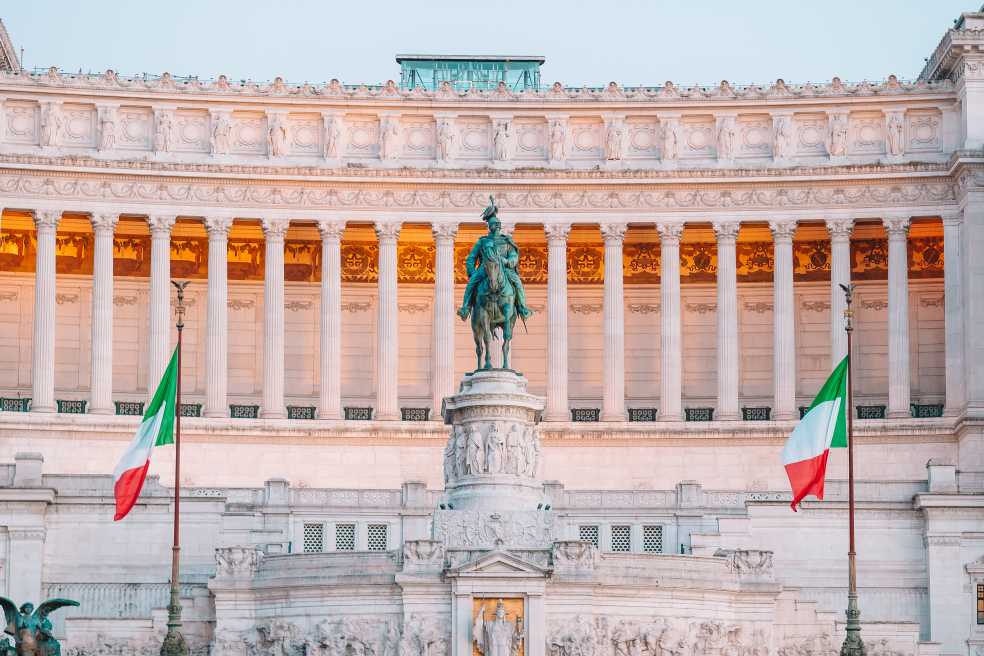Thursday, 18 September 2025
Elective Residence Visa Italy: a guide to getting your permit
Choosing to reside in Italy through the Elective Residence Visa is a decision that blends financial independence with a desire to immerse yourself in one of Europe’s most vibrant cultures. Designed for non-EU citizens who can support themselves without working, this visa offers a unique pathway to long-term residence and, eventually, Italian citizenship. Understanding the eligibility criteria, application process, and ongoing requirements is essential to successfully navigating this journey and embracing life in Italy.
Introduction to Elective Residence Visa
The Elective Residence Visa Italy offers is a long-term residence visa designed for non-EU citizens who wish to reside permanently in the country without engaging in employment. Often referred to as the Italy Retirement Visa, it caters to financially independent individuals and retirees seeking a tranquil lifestyle in Italy.
Applicants must demonstrate sufficient financial resources, typically through stable passive income sources such as pensions, rental income, or investment returns. The minimum annual income requirement is approximately €31,000 for individuals and €38,000–€40,000 for couples, with additional income needed for dependents. Proof of suitable accommodation in Italy and private health insurance covering at least €30,000 per year are also mandatory.
This visa allows holders to travel within the Schengen Area and provides a pathway to Italian citizenship after ten years of continuous residence, subject to meeting language proficiency and other requirements.
Eligibility requirements
To qualify for the Italian retirement visa, applicants must meet specific criteria set by the Italian authorities. This visa is designed for non-EU citizens who wish to reside permanently in Italy without engaging in employment.
Age requirement
Applicants must be at least 18 years old.
Financial self-sufficiency
Demonstrating sufficient financial resources is crucial. As of 2024, the minimum annual income requirement is approximately €31,000 for a single applicant. For couples, this amount increases to €38,000–€40,000, with additional income required for each dependent child. Acceptable sources of income include pensions, rental income, investment returns, and other passive income streams. Applicants must provide bank statements, investment certificates, and other financial documentation to substantiate their income.
Health insurance coverage
A private health insurance policy valid in Italy for at least one year is mandatory. The policy must cover medical expenses up to a minimum of €30,000.
Clean criminal record
Applicants must provide a clean criminal record from their home country. Some consulates may require additional documentation, such as tax returns or a letter explaining the reasons for moving to Italy.
Consideration of individual circumstances
The Italian consulate evaluates each application based on individual circumstances. Factors such as financial assets, family members, and ties to the home country are considered during the assessment process.

Required documents for Elective Residence Visa application
To apply for Italy’s Elective Residence Visa, applicants must submit specific documentation to demonstrate their eligibility. Below is a detailed breakdown of the required documents:
Valid passport
Applicants must possess a valid passport with at least two blank pages and a minimum validity of three months beyond the validity date of the requested visaThis is a fundamental requirement for initiating the visa application process.
Proof of financial resources
Financial documentation may include:
- Bank statements from the past six months
- Investment certificates
- Pension statements
- Tax returns
These documents should reflect consistent and sufficient income to support the applicant and any accompanying family members without the need for employment.
Proof of accommodation in Italy
Applicants need to provide documented evidence of suitable accommodation in Italy. Acceptable forms of proof include:
- A rental agreement with a minimum duration of one year
- A property deed if the applicant owns the property
- A hospitality declaration from a host residing legally in Italy, accompanied by the host’s property deed or lease agreement and a copy of the host’s identity document
Short-term bookings, such as hotel reservations, are not accepted. The accommodation must be located within the municipality where the applicant intends to reside.
Documents for dependents (if applicable)
If the applicant is accompanied by family members, additional documentation is required:
- Marriage certificate for a spouse
- Birth certificates for dependent children
Furthermore, applicants must demonstrate an increase in passive income to meet the financial requirements for each dependent:
- An additional 20% of the base income requirement for each dependent child
These documents must be translated into Italian and may require legalization or an apostille, depending on the consulate’s requirements.
Ensuring that all required documents are complete, accurate, and properly translated is essential for the success of the Elective Residence Visa application. Applicants are advised to consult the specific requirements of the Italian consulate in their jurisdiction, as there may be variations in documentation or procedures.
Application process overview
Applying for Italy’s Elective Residence Visa involves several key steps to ensure a successful application.
Step 1: Document preparation
Begin by gathering all required documents. Ensure all documents are translated into Italian and legalized as per consulate requirements.
Step 2: Submit application
Schedule an appointment at the nearest Italian consulate. Submit your application in person, providing all original documents and photocopies. Be prepared to explain your financial plan and reasons for relocating.
Step 3: Wait for processing
Processing times vary, but typically the Italian Consulate issues a multiple-entry type-D elective residence visa within 180 days, and the visa is valid for 365 days. Some consulates allow online tracking; others do not.
Step 4: Enter Italy and apply for a residence permit
Once approved, enter Italy within the visa’s validity period. Within eight working days, apply for a residence permit (permesso di soggiorno) at the local Questura (police station). You will need to:
- Visit the local post office to collect your application kit
- Submit your application and attend an appointment at the Questura
- Receive your residence card and official registration
Importance of professional assistance
Given the complexity of the application process and the importance of meeting all requirements, seeking professional assistance can be beneficial. Experts can guide you through document preparation, ensure compliance with consulate specifications, and help navigate any challenges that may arise during the application process.

Path to Italian citizenship
While the Elective Residence Visa does not permit employment in Italy, it serves as a stepping stone toward permanent residency and, eventually, Italian citizenship. After residing in Italy for five consecutive years on an Elective Residence Permit, individuals may apply for a permanent residence permit. This status grants broader rights, including access to public services and the ability to reside indefinitely in Italy.
Ten years of continuous residence are required to apply for Italian citizenship. Applicants must demonstrate proficiency in the Italian language, typically through an official test. Additionally, they must provide proof of tax residency in Italy, indicating that they have been paying Italian taxes. A clean criminal record is also a prerequisite for citizenship.
It’s important to note that the pathway to citizenship is not automatic. Each application is evaluated on a case-by-case basis by the Italian authorities, considering individual circumstances and adherence to legal requirements.
Alternative visa options
For those interested in residing in Italy but not qualifying for the Elective Residence Visa, several alternative visa options are available:
- Investor visa: Designed for individuals willing to invest a significant amount in Italy, such as through government bonds or innovative startups. This visa can lead to a residence permit and, eventually, citizenship.
- Digital nomad visa: Introduced in 2024, this visa allows remote employees working remotely online to live in Italy while employed by foreign companies. Applicants must meet income thresholds and demonstrate their employment status.
- Italian Golden Visa: Aimed at high-net-worth individuals, this visa requires a substantial investment in Italy’s economy, such as purchasing property or creating jobs. It offers a pathway to residency and citizenship.
Each visa type has specific requirements and benefits. It’s crucial to assess personal circumstances and consult with legal experts to determine the most suitable option.
Post-approval phase
Within eight days of arrival, they are required to apply for a residence permit at the local police department (Questura). This permit is essential for legal residence in Italy and must be renewed periodically.
During the renewal process, individuals must continue to demonstrate financial self-sufficiency and maintain valid health insurance coverage. Failure to meet these requirements can result in the non-renewal of the residence permit.
It’s advisable to keep all documentation, such as bank statements and proof of accommodation, up to date and readily available for inspection by Italian authorities.
Working with an Elective Residence Visa
The Italy Elective Residency Visa explicitly prohibits holders from engaging in any form of employment within Italy. Applicants must demonstrate that they possess adequate income to support themselves without the need for local employment. This income can derive from various sources, such as property income, pensions, or investments.
However, individuals holding this visa may engage in remote work for foreign employers, provided that the work does not involve Italian entities or generate income within Italy. It’s essential to ensure that such remote work complies with both Italian immigration laws and tax regulations.
Before commencing any remote work, it’s prudent to consult with legal professionals to ensure compliance with all applicable laws and to avoid jeopardizing the status of the Elective Residence Visa.
Conclusion: making Italy your new home
Securing the Italian Elective Residence Visa is more than just completing paperwork; it’s the first step toward embracing a lifestyle rich in culture, history, and opportunity. Navigating the application process, meeting financial and legal requirements, and planning for long-term residency require careful preparation and informed decisions. By understanding each phase, from obtaining your elective residence permit to eventually applying for permanent residence or citizenship, you’re laying the foundation to truly call Italy home.
If you’re ready to embark on this journey with confidence and clarity, Aprigliano International Law Firm is your trusted partner. Specializing in Italian immigration, including elective residency visas and permanent residence permits, Aprigliano offers expert guidance tailored to your unique circumstances.
